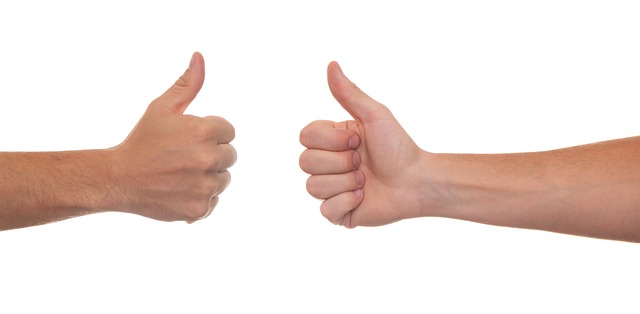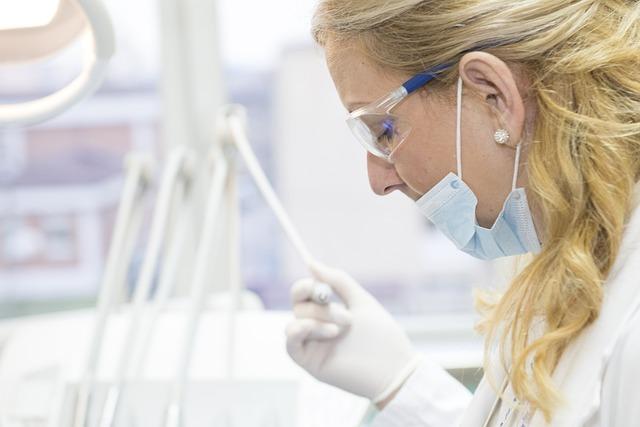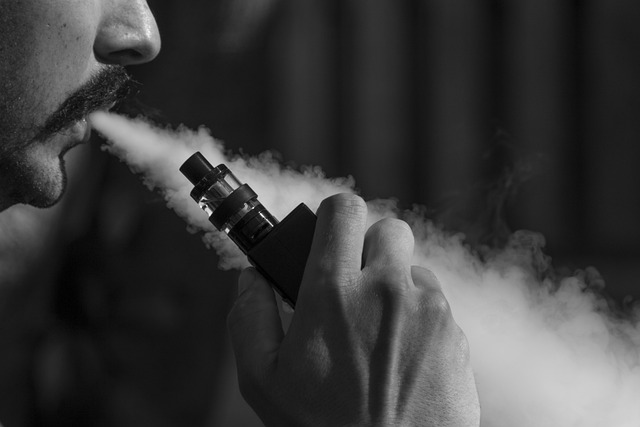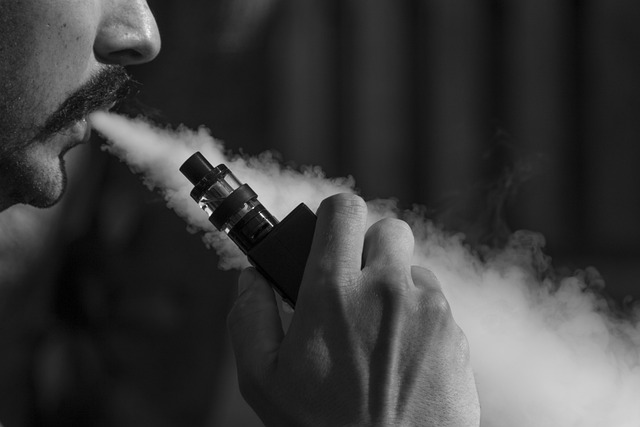Can You Vape When You Get Your Wisdom Teeth Out? Key Points
Are you scheduled to get your wisdom teeth removed and wondering if you can still enjoy your favorite vaping habit during the recovery process? It’s a question that many vapers face when faced with oral surgery. In this informative article, we will explore the key points surrounding vaping after wisdom teeth extraction. Drawing from expert advice and reliable sources, we will provide you with a clear understanding of whether vaping is a viable option during this crucial healing period. So, read on to discover the facts and make an informed decision that prioritizes both your oral health and your vaping enjoyment.
1. Understanding the Impact of Wisdom Teeth Extraction on Vaping: What You Need to Know
When it comes to getting your wisdom teeth extracted, it’s important to understand how it can affect your vaping habits. Here’s what you need to know:
1. Healing process: After wisdom teeth extraction, your mouth needs time to heal. Vaping can introduce chemicals and irritants to the surgical site, potentially hindering the healing process. It is recommended to avoid vaping for at least 48 hours post-surgery to minimize the risk of complications.
2. Risk of dry socket: Dry socket is a common complication that can occur after wisdom teeth extraction. It is a painful condition where the blood clot that forms after surgery becomes dislodged or dissolves, exposing the underlying bone and nerves. Vaping, especially if you create suction while inhaling, can increase the risk of developing dry socket. It’s crucial to follow the dentist’s instructions and refrain from vaping until you are fully healed to prevent this complication.

2. The Healing Process: How Wisdom Teeth Removal Affects Vaping
When it comes to wisdom teeth removal, many people are concerned about how it may impact their daily activities. One common question that arises is how vaping is affected during the healing process. It’s important to understand that wisdom teeth removal can have an impact on vaping, but the extent of this impact varies from person to person and depends on several factors.
Firstly, it’s crucial to note that after wisdom teeth removal, you should avoid vaping for at least 24-48 hours to allow the extraction sites to heal properly. This period of abstinence is necessary to minimize the risk of complications such as dry socket, which can occur when the blood clot in the extraction site becomes dislodged or dissolves prematurely. Vaping during this initial healing phase can create suction and pressure that may disrupt the healing process and increase the chances of developing dry socket.
Once the initial healing period has passed, you can gradually reintroduce vaping. However, it’s essential to proceed with caution and pay attention to your body’s signals. Some individuals may experience increased sensitivity or discomfort while vaping, especially if the vapor is too hot or irritating. In such cases, it’s advisable to take a break from vaping until the mouth fully recovers. Additionally, maintaining good oral hygiene, including gentle brushing and rinsing after vaping, can help prevent any potential complications and promote a smooth healing process.
- During the healing process, avoid vaping for 24-48 hours to allow proper healing.
- Reintroduce vaping gradually after the initial healing period, taking note of any discomfort or sensitivity.
- Pay attention to the temperature and irritants in the vapor, as they may affect the healing process.
- Maintain good oral hygiene by gently brushing and rinsing after vaping to prevent complications.

3. Clear Guidelines: Can You Safely Vape After Wisdom Teeth Extraction?
After undergoing wisdom teeth extraction, it is important to follow clear guidelines for a safe and comfortable recovery. One common concern among patients is whether it is safe to vape during this healing period. While it may be tempting to resume vaping, it is crucial to consider the impact it may have on the healing process.
Here are some key points to keep in mind when deciding whether you can safely vape after wisdom teeth extraction:
- Consult with your dentist: Before making any decisions, it is always recommended to consult with your dentist or oral surgeon. They will be able to assess your specific situation and provide personalized advice based on your healing progress.
- Avoid vaping immediately after surgery: In the initial days following wisdom teeth extraction, it is best to avoid vaping altogether. The suction created while vaping can dislodge blood clots, leading to a painful condition known as dry socket.
- Be mindful of nicotine: Nicotine, whether delivered through vaping or other means, can impede the healing process. It restricts blood vessels and decreases blood flow, which is essential for proper healing. It is advisable to avoid nicotine for a few days or as recommended by your dentist.
- Consider alternative options: If you are unable to abstain from vaping during your recovery, consider using nicotine-free e-liquids or alternative methods such as nicotine patches or gum. These options eliminate the potential harm caused by nicotine while still satisfying your vaping habit.
Remember, each person’s healing process is unique, so it is crucial to follow the guidance of your dental professional. By prioritizing your oral health and adhering to clear guidelines, you can ensure a smooth and uneventful recovery after wisdom teeth extraction.

4. Potential Risks and Complications: Vaping and Wisdom Teeth Removal
Potential Risks and Complications:
When it comes to wisdom teeth removal, it is important to be aware of potential risks and complications that may arise if you are a regular vaper. While vaping has gained popularity in recent years, it is crucial to understand how it can impact your recovery process and overall oral health. Here are a few key points to consider:
- Prolonged Healing Time: Vaping introduces chemicals and heat to your mouth, which can impede the healing process after wisdom teeth extraction. The heat from vaping devices can cause dry socket, a painful condition where the blood clot that forms after extraction dislodges or dissolves prematurely.
- Infection Risk: Vaping can increase the risk of developing an infection after wisdom teeth removal. The chemicals present in e-cigarettes can irritate the surgical site, making it more susceptible to bacterial growth. This can lead to complications such as swelling, pain, and delayed healing.
- Delayed Pain Relief: Nicotine present in vaping products can restrict blood vessels and decrease blood flow, which can impede the delivery of pain medication to the surgical site. This may result in prolonged pain or discomfort during the recovery period.
It is important to consult with your oral surgeon or dentist before undergoing wisdom teeth removal if you are a regular vaper. They can provide personalized advice and guidance based on your specific situation. It may be recommended to abstain from vaping for a certain period before and after the procedure to minimize the potential risks and complications associated with vaping and wisdom teeth removal.

5. Expert Advice: When and How to Resume Vaping After Wisdom Teeth Extraction
After wisdom teeth extraction, it is important to take proper care of your mouth to ensure a smooth recovery. If you are a vaper, you may be wondering when and how you can safely resume vaping without compromising your healing process. While everyone’s recovery time may vary, here are some expert tips to help you determine when it is safe to start vaping again and the precautions you should take:
1. Wait for the initial healing period:
- It is recommended to wait at least 48-72 hours after the extraction before you resume vaping. This initial healing period allows for the blood clot to form and the socket to start healing.
- Avoid vaping during this time to prevent any negative effects on the healing process, such as dislodging the blood clot or introducing bacteria into the socket.
2. Start with gentle inhales:
- When you’re ready to resume vaping, start with gentle inhales to minimize any suction or pressure on the extraction site.
- Avoid creating a strong suction by using devices with lower wattage or adjusting the airflow to reduce the force required to inhale.
- If you experience any discomfort or pain while vaping, stop immediately and give yourself more time to heal before trying again.
By following these expert tips, you can make a smooth transition back to vaping after wisdom teeth extraction. Remember, it is essential to listen to your body and consult with your dentist if you have any concerns or questions about resuming vaping.
6. Alternative Options: Exploring Nicotine Replacement Therapy During Recovery
Nicotine replacement therapy (NRT) can be a useful tool for individuals in recovery who are looking to quit smoking or reduce their nicotine consumption. NRT provides a safer alternative to smoking by delivering nicotine to the body without the harmful toxins found in cigarettes. Here are a few alternative options to consider when exploring NRT during your recovery:
- Nicotine gum: This type of NRT is chewed and releases nicotine into the bloodstream through the lining of the mouth. It can help reduce cravings and withdrawal symptoms.
- Nicotine patches: These patches are applied to the skin and slowly release nicotine throughout the day. They provide a steady dose of nicotine and can be helpful for individuals who want a more consistent nicotine level.
- Nicotine lozenges: Lozenges are dissolved in the mouth and release nicotine. They can be a convenient option for managing cravings and can be used discreetly.
It’s important to note that while NRT can be beneficial during recovery, it’s essential to consult with a healthcare professional before starting any nicotine replacement therapy. They will be able to provide guidance on the most suitable option for your individual needs. Additionally, combining NRT with other forms of support, such as counseling or support groups, can increase your chances of successfully quitting smoking and maintaining your recovery.
7. Conclusion: Making Informed Decisions for a Smooth Recovery from Wisdom Teeth Extraction
Making informed decisions after wisdom teeth extraction is crucial for a smooth and successful recovery. By following the right steps and taking necessary precautions, you can minimize discomfort and ensure a faster healing process. Here are some key points to keep in mind:
- Take prescribed pain medication: Your oral surgeon will likely prescribe pain medication to manage any discomfort after the procedure. It’s important to follow the recommended dosage and timing to effectively control pain.
- Apply ice packs: Swelling is a common side effect after wisdom teeth extraction. Placing ice packs on your cheeks for 15-20 minutes at a time can help reduce swelling and provide relief.
- Follow a soft food diet: Stick to a diet of soft foods for the first few days to avoid irritating the extraction sites. Opt for smoothies, soups, mashed potatoes, and yogurt, gradually reintroducing solid foods as you heal.
Additionally, it’s crucial to avoid certain activities that can disrupt the healing process:
- Avoid using straws: Sucking through a straw can dislodge blood clots and delay healing. It’s best to drink directly from a cup or use a spoon for liquids.
- Refrain from smoking: Smoking can impair the healing process and increase the risk of complications. It’s important to abstain from smoking for at least 72 hours after the extraction.
- Keep your mouth clean: Gently rinse your mouth with warm saltwater after meals to keep the extraction sites clean. This will help prevent infection and promote healing.
By considering these guidelines and making informed decisions during your recovery, you can ensure a smoother healing process and minimize any potential complications. Remember to reach out to your oral surgeon if you have any concerns or questions along the way.
Frequently Asked Questions
Q: Can you vape when you get your wisdom teeth out?
A: No, it is not recommended to vape after having your wisdom teeth removed.
Q: Why is vaping not advisable after wisdom teeth removal?
A: Vaping can hinder the healing process and potentially lead to complications.
Q: What are the risks associated with vaping post-surgery?
A: Vaping introduces heat and chemicals to the surgical site, increasing the chance of infection, delayed healing, and dry socket formation.
Q: What is dry socket?
A: Dry socket is a painful condition that occurs when the blood clot in the extraction site becomes dislodged or dissolves, leaving the underlying bone and nerves exposed.
Q: How does vaping affect the healing process?
A: Vaping can irritate the surgical site, causing inflammation and delaying tissue repair. Additionally, nicotine in vape juice constricts blood vessels, reducing blood flow and oxygen supply to the area.
Q: Are there any alternatives to vaping during the recovery period?
A: Yes, there are alternative nicotine delivery methods, such as nicotine patches or gum, that can be used instead of vaping.
Q: When can I resume vaping after wisdom teeth removal?
A: It is best to consult with your oral surgeon for specific guidance, as recovery times can vary. However, it is generally recommended to wait until the surgical site has fully healed and you are no longer experiencing any discomfort.
Q: What other precautions should I take during the recovery period?
A: It is essential to follow your dentist’s post-operative instructions, including proper oral hygiene, avoiding activities that may dislodge the blood clot, and attending follow-up appointments.
Q: Can vaping impact the success of the surgery?
A: While vaping alone may not directly affect the success of the surgery, it can contribute to complications and hinder the healing process, ultimately prolonging your recovery time.
Q: What should I do if I have already vaped after wisdom teeth removal?
A: If you have already vaped after the surgery, it is crucial to inform your oral surgeon. They will assess your situation and provide appropriate recommendations or interventions if necessary.
Remember, always consult your oral surgeon or dentist for personalized advice regarding post-operative care after wisdom teeth removal.
To Wrap It Up
In conclusion, it is strongly advised to avoid vaping when you get your wisdom teeth removed. While it may be tempting to indulge in your vaping routine, it can hinder the healing process and lead to potential complications. Here are the key takeaways:
1. Vaping can delay the healing process: The act of inhaling vapor can irritate the surgical site, causing inflammation and prolonging recovery time.
2. Nicotine can have detrimental effects: Whether in traditional cigarettes or e-cigarettes, nicotine can impede blood flow to the surgical site, increasing the risk of infection and dry socket.
3. Chemicals in e-liquids may cause complications: The various chemicals present in e-liquids can potentially interfere with the healing process, leading to complications such as delayed wound closure or tissue damage.
4. Consult your oral surgeon for personalized advice: To ensure a smooth and successful recovery, it is crucial to consult with your oral surgeon before making any decisions regarding vaping after wisdom teeth extraction.
Remember, the priority should always be your oral health and a speedy recovery. It is best to abstain from vaping until you have fully healed.






